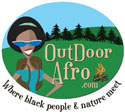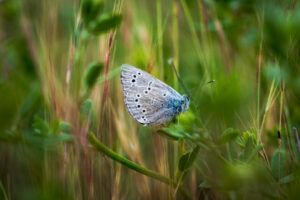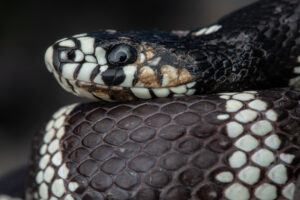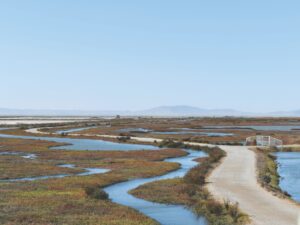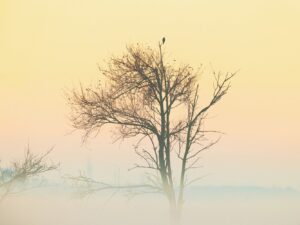Inspired by a childhood divided between urban Oakland and a Lake County working ranch, Rue Mapp founded Outdoor Afro, an online community and organization that reconnects African-Americans with natural spaces and one another through outdoor recreational activities.
BN: Tell us about your early experiences with nature.
RM: I grew up in Oakland but my parents also owned a ranch at Lower Lake. It was six acres of my dad’s creation. We had a house, livestock, an English walnut orchard, and a creek that bordered the land. We spent every other weekend and major holidays there. It was a great place to unplug from urban living. We didn’t even have a phone! I had a lot of freedom to explore, ride my bike on the country roads, and learn about the seasons. My dad was an avid hunter and fisherman. We’d bring the meats and vegetables we grew there back to our house in Oakland, long before the words “organic” and “sustainable” were part of the language. We were considered a little odd. For example, it was awkward when my dad would hang a pig in the garage; I would pray, “Please don’t let my friends drive by right now to see this!”
BN: And you’ve passed on this love of nature to your own kids?
RM: Yes, I’m a mother of three – I got married in my twenties. I’ve camped with them and hiked with them, and now it’s really a part of who they are. My oldest son, who is 15, is a Boy Scout, and I do almost every outdoor activity with my younger kids, like the Ohlone Greenway trail ride to the Richmond Greenway.
BN: When and how did Outdoor Afro come to be?
RM: I founded it in 2009 after some soul-searching about what I really cared about. There have been a few constants in my life: love of nature; the desire to connect in nature with people who look like me; and technology – when I was younger I was always on my Commodore 64! Later I studied art history at UC Berkeley, which helped me to understand the power of visual representation to tell stories, to dispel the myth that African Americans don’t engage with the outdoors. And recently, social media has allowed me to connect with people in a more strategic way.
BN: What are some of Outdoor Afro’s greatest successes – and challenges?
RM: Outdoor Afro has become a bridge to help me connect to many different communities that I never anticipated helping. It has given me a way to enjoy all the parts of who I am – nature lover, family person, technology geek – and get to do some good in this world. I’m connecting people with places right in their own backyards. For instance, I took a group of people that have lived in East Oakland for decades to the MLK Jr. Regional Shoreline near the airport in Oakland: they had no idea it was there. It has also served as a way to connect me with the environmental education community. I am now Youth Investment Program officer at the Stewardship Council, where I oversee the funding of projects that help California youth connect with the outdoors. Recently, I was asked to be on the National Parks Advisory Committee on Relevancy. And I’m currently involved in an environmental education capacity-building grant, a joint effort between the EPA and Cornell University to study how environmental education can be more relevant to non-traditional communities.
The biggest challenge for me now is capacity – how to grow in a way that’s thoughtful. I’ve been imagining and experimenting with ways to incorporate other voices.
BN: What’s your favorite park, hike, or place to go in nature in the Bay Area?
RM: I love going to the Albany Bulb for the sunset – it’s only a 20-minute walk from my house, and it has so many stunning views of the bay. I also really love Tilden – it’s like your living room – you can get comfortable there. And I like the urban greenways like the Ohlone Greenway between Berkeley and Richmond. There’s something about trails that are a buffer between the natural world and the urban experience that really captures my imagination. It’s fascinating that we have that intersection between the natural and the urban happening all the time.
BN: You just came back from your first trip to Alaska. What did you take away from that experience?
RM: It was really amazing – it’s so vast, and offers an opportunity to experience nature on a grand scale. Wherever we were, people were out there rock climbing, fishing, etc.
It just reinforced the need for me to get out and share the different ways we can engage with nature, to inspire people to try outdoor activities they might not visualize themselves doing. Revising perceptions and expectations about who can connect with the outdoors; that’s what I want to be doing.
To learn more about Outdoor Afro, explore its website outdoorafro.com.

.jpg)
